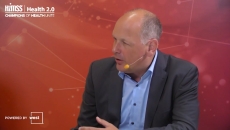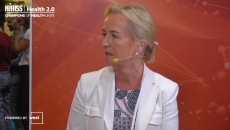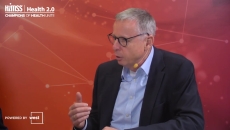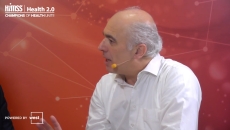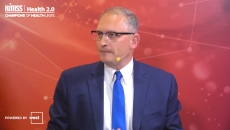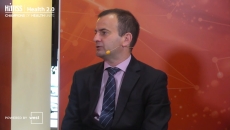HIMSS TV
Automating some processes can deliver diagnoses more quickly, increasing the chance of better outcomes for patients while reducing clinicians' workloads, says Kevin Shah, head of Enterprise New Business at Fujifilm Europe.
Henning Schneider, CIO of Asklepios Healthcare Group, says while some German hospitals are already digitally advanced, he is excited to learn from the Nordic countries about improving interoperability and data exchange.
Cancer patients who used digital solutions to stay connected to their caregivers and report symptoms lived 6-7 months longer, says Dr. Johanna Mattson, director of Comprehensive Cancer Center at Helsinki University Hospital.
Dr. Markus Müschenich, MPH, managing partner at Flying Health, says integrating healthcare into self-driving cars will present a completely new global business opportunity for digital health companies.
Koen Kas, founder of Healthskouts, says the aim is to "die young, but as late as possible" by utilizing digital technology to remove barriers and offer patients new experiences to make healthcare delightful.
Organizations need to inform their workforce about cybersecurity risks as well as ensure that a proportional investment is made into security to ensure risks are mitigated, says Ronald Petru, CMIO at Radboudumc in the Netherlands.
Jordi Serrano Pons, CEO of UniversalDoctor, says we need to collaborate and work with organizations such as HL7 on developing tools to ensure greater interoperability, while also learning from each other.
Elena Bonfiglioli, Microsoft's regional business leader of Health and Life Sciences at EMEA, says empowering clinicians through collaboration and coordination is at the core of improving outcomes through personalized care.
Kotona At Home is a remote delivery care treatment center whose goal is to give people the means to live at home longer.
The challenge for all countries is to make the data assets actionable, but trust is needed with any data sharing strategy, says Tom Foley, MD, senior clinical lead at NHS Digital.


